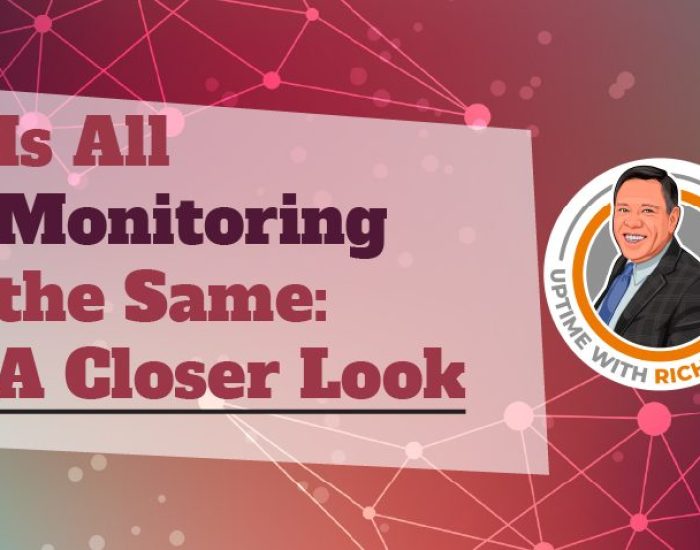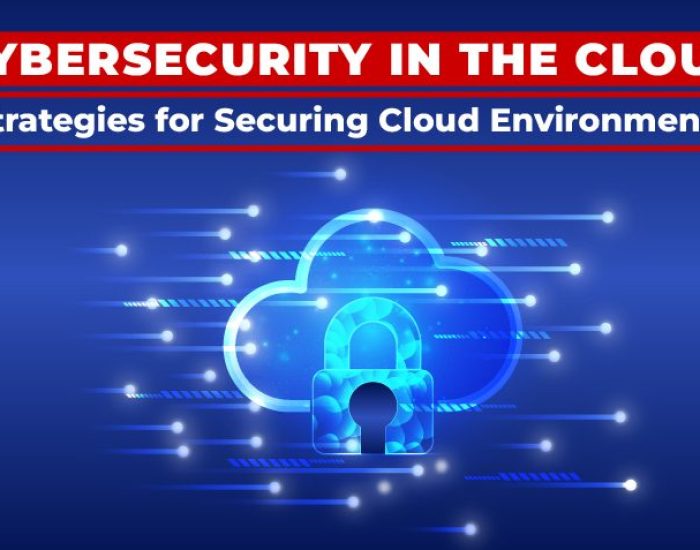10 Things to Consider When Looking for a Managed Service Provider
As we outline the ten key considerations when looking for an MSP, remember that your choice will have far-reaching consequences. Your MSP will become a trusted partner, helping you navigate the ever-evolving IT landscape. Therefore, it’s essential to carefully evaluate your options to ensure you find an MSP that aligns with your business objectives, budget, and long-term goals. This blog briefly discusses 10 Things to Consider When Looking for an MSP.
1. Experience and Expertise
When considering an MSP, one of the most critical factors to assess is their experience in the industry. MSPs with a proven track record have likely encountered and successfully resolved many IT challenges. This experience can be invaluable in ensuring the stability and security of your IT environment.
Experienced MSPs have the knowledge and insights to anticipate potential issues, implement best practices, and provide proactive solutions. Their familiarity with different industries and technologies equips them to tailor their services to meet your specific needs, ultimately reducing downtime and increasing operational efficiency.
In addition to general experience, consider the expertise an MSP brings. Some MSPs specialize in specific technologies or industries, such as healthcare, finance, or legal services. Choosing an MSP with expertise in your particular field can be a game-changer.
2. Service Offerings
Managed Service Providers offer a wide range of services to meet the diverse needs of businesses. These services can include but are not limited to:
- Network Management: Monitoring, maintaining, and optimizing your network infrastructure.
- Cybersecurity: Protecting your data and systems from cyber threats.
- Cloud Services: Managing and optimizing cloud solutions, such as AWS, Azure, or Google Cloud.
- Data Backup and Recovery: Ensuring data integrity and providing recovery solutions.
- Help Desk Support: Offering responsive support for end-users and troubleshooting.
- Infrastructure Management: Maintaining servers, hardware, and software.
- Vendor Management: Coordinating with third-party vendors for seamless IT operations.
It’s essential to evaluate an MSP’s service offerings in the context of your specific business needs. An ideal MSP should not only offer the services you require but also be flexible in tailoring their solutions to your unique demands.
3. Scalability
Scalability is a vital factor when selecting an MSP. Your business will likely evolve and expand, and your IT needs will change accordingly. An MSP that can scale with your growth is crucial to ensure a seamless transition and continued support.
When an MSP can adapt its services to accommodate your expanding infrastructure and user base, you avoid the hassle of frequently switching providers. This long-term partnership enables consistency and a deep understanding of your organization’s IT requirements.
4. Service Level Agreements (SLAs)
Service Level Agreements (SLAs) are a critical aspect of any MSP contract. They are formal, written commitments that outline the specific services an MSP will provide, as well as the performance standards and expectations. SLAs ensure that both parties have a clear understanding of the services to be delivered and the quality of service to be expected.
The importance of SLAs in MSP contracts cannot be overstated. They provide a framework for accountability and transparency, helping to define the responsibilities of the MSP and set the expectations for your business. Without clear SLAs, it can be challenging to hold the MSP accountable for meeting your IT needs.
5. Security and Compliance
In today’s digital landscape, cybersecurity and compliance are paramount concerns for businesses of all sizes. Emphasize the significance of these aspects when evaluating an MSP. The MSP you choose should have robust security measures to protect your data and systems from evolving threats.
Additionally, compliance with industry regulations and standards is non-negotiable for certain businesses, such as healthcare or finance. Your MSP should demonstrate a clear understanding of these requirements and offer solutions that ensure your organization remains compliant.
An MSP should provide a comprehensive approach to cybersecurity and compliance. This includes regular security audits, threat monitoring, data encryption, and employee training to prevent security breaches. They should also be well-versed in industry-specific regulations and be able to implement processes and technologies to maintain compliance.
 6. Customer Support and Communication
6. Customer Support and Communication
Responsive and effective customer support is fundamental when working with an MSP. Your IT needs may sometimes require assistance, and a lack of timely support can result in downtime and productivity losses. Highlight the importance of having a reliable support system in place.
A critical aspect of customer support is the communication channels available to you, and the response times you can expect. Discuss with potential MSPs how they handle support requests, including whether they offer 24/7 support and the methods for contacting them, such as phone, email, or ticketing systems. Understanding their response times for different issues is essential for evaluating their commitment to providing excellent customer support.
7. Pricing and Contracts
Managed Service Providers often employ various pricing models, and understanding these models is essential for making an informed decision. Standard pricing models include:
- Fixed Fee: A set monthly or yearly fee for a predefined set of services.
- Per-User or Per-Device: Paying based on the number of users or devices being managed.
- Tiered Pricing: Offering different service levels with associated costs.
- Pay-as-You-Go: Paying only for the services you use.
When entering into a contract with an MSP, transparency is critical. Clear and transparent contracts should outline all services covered, pricing structures, any potential extra charges, and the duration of the agreement. This transparency ensures both parties have a common understanding of the terms and expectations.
A well-defined contract protects your interests and avoids unexpected costs down the line. It also sets the foundation for a successful collaborative partnership.
8. Automation and New-age Technologies
The adoption of automation and new-age technologies is at the forefront of this transformation, offering businesses unparalleled advantages in terms of efficiency, cost savings, and staying current with IT trends.
MSPs that embrace automation understand the value of streamlining routine tasks, reducing manual labor, and enhancing efficiency. Automation tools can monitor your IT infrastructure 24/7, identify issues in real-time, and respond promptly, often before you notice a problem. This proactive approach not only minimizes downtime but also prevents potential disruptions to your business operations.
But it doesn’t stop at automation. Forward-thinking MSPs also harness innovative technologies such as artificial intelligence (AI), machine learning, and predictive analytics. These technologies provide several benefits.
Choosing an MSP that stays on the cutting edge of automation and new-age technologies ensures that your IT infrastructure remains agile, responsive, and in tune with the latest trends in the industry. This can be a significant competitive advantage, as it allows your business to adapt quickly to changing technology landscapes and remain efficient in an ever-evolving market.
9. Customization to Meet Your Unique Needs
Every business is unique, with its challenges, goals, and IT requirements. While some MSPs offer standard, off-the-shelf services, these may not fully meet the specific needs of your organization. That’s where the importance of customization comes into play.
A reliable MSP should be willing and able to tailor their offerings to suit your needs, aligning their services with your business goals. Customization is crucial because it ensures that the solutions provided by the MSP align closely with your specific challenges and objectives.
Customization ensures that you receive the maximum value from your MSP partnership, as the solutions provided are precisely designed to address your organization’s distinct needs and challenges.
10. Inquire About Response Times
When technology issues arise, prompt and effective responses are essential for minimizing downtime, ensuring business continuity, and resolving problems swiftly.
When evaluating potential MSP partners, don’t hesitate to ask questions about response times and the processes in place to address support requests. A reliable MSP should provide clear commitments on response times, typically outlined in their Service Level Agreements (SLAs).
By inquiring about response times, you can ensure that the MSP you choose has a support structure in place that aligns with your business’s need for quick issue resolution. This proactive approach to support can significantly reduce the impact of IT disruptions and ensure your operations run smoothly.
11. Where are they located?
Our company, a leading managed services provider (MSP) in the US, is headquartered in Orangeburg NYC, offering top-tier proactive IT support. We specialize in remote network management, ensuring your systems run smoothly and securely. Our team is dedicated to preventing issues before they arise, providing comprehensive solutions tailored to your business needs. With our proactive IT support, you can focus on your core operations while we handle the complexities of your IT infrastructure. Trust us to keep your business connected and protected, no matter where you are located.
Do They Specialize in Managed Security Services (MSS)?
When assessing potential Managed Service Providers (MSPs) for IT outsourcing services, it’s crucial to prioritize those with expertise in Managed Security Services (MSS), IT infrastructure management, and disaster recovery solutions. Look for an MSP that specializes in proactive threat detection and response, offers 24/7 monitoring and support, and demonstrates compliance with industry-specific security regulations. Additionally, consider scalability, flexibility, and transparent service level agreements (SLAs) to ensure alignment with your organization’s needs and growth objectives. By selecting an MSP with a proven track record in MSS and a comprehensive suite of IT security solutions, you can mitigate risks effectively and safeguard your IT infrastructure against evolving cyber threats while optimizing performance and compliance.
Can They Work with Your Managed Service Budget?
When selecting a Managed Service Provider (MSP), it’s crucial to assess whether they can align with your managed service budget. Look for providers who offer flexible pricing models and transparent cost structures that fit your financial constraints without compromising quality. Ensure they provide comprehensive services within your budget, including 24/7 IT support for businesses to maintain uptime of IT systems. Additionally, inquire about their IT consulting services for small businesses, as strategic guidance can help optimize your IT investments and enhance operational efficiency. A reliable MSP will prioritize understanding your financial objectives and offer scalable solutions that evolve with your business needs, ensuring you receive maximum value from your IT investments while maintaining reliable and secure IT operations. This approach not only supports cost-effectiveness but also fosters a long-term partnership focused on mutual growth and success.
Final Thoughts
Choosing the right Managed Service Provider (MSP) is a pivotal decision for any organization. From assessing an MSP’s experience and expertise to examining service offerings, SLAs, security, and responsiveness, each factor plays a crucial role in determining the success of your MSP partnership.
Remember that the right MSP should not just meet your current IT needs but also have the flexibility and vision to support your growth and evolving technology requirements.
Protected Harbor is a top-choice Managed Service Provider in the US that checks all the boxes we’ve discussed. Their comprehensive approach to managed services includes the above.
If you’re ready to explore how Protected Harbor can be your trusted MSP partner, we encourage you to reach out for more information. Get a free IT Audit, discuss your needs, and discover how they can help your business thrive in the digital age.
Remember, the right MSP can be a game-changer for your organization, so don’t hesitate to take that first step towards enhancing your IT infrastructure and achieving your business goals.






